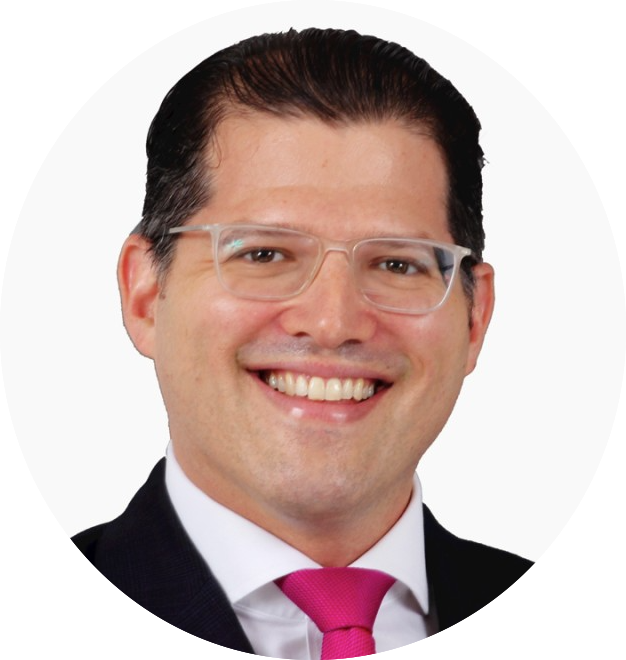
Even before the onset of the global health crisis, banks and other financial services companies were moving in the direction of greater digitization to improve efficiency, cut costs, and most importantly, deliver new and enhanced products and services to an increasingly-tech savvy – and tech-dependent – consumer.
But do firms in the financial services space need to do more than just digitally transform themselves? What strategies do these businesses need to adopt in order to further differentiate their offerings from rivals? How can they provide their customers with the kind of personalized, low- to no-latency, access anywhere, digitally-oriented service their customers have come to expect from all institutions – public or private, large or small, financial or not?
For this week’s Finovate Alumni Profile, we caught up with Stanley Huang, Chief Technology Officer for Moxtra, to discuss these challenges. Specifically, we talk about what he calls the “marketing mindset” that financial services businesses need to adopt in order to not just survive, but thrive in these uncertain times. A leading business collaboration platform designed for the mobile era, Moxtra offers an embeddable omni-channel client engagement solution for financial services companies. The company, founded in 2012 and headquartered in Cupertino, California, has been a Finovate alum since 2016.
Finovate: Digital transformation is the major buzzword for companies right now – understandably. However, would you say that there is more to making it through the current crisis – to say nothing of coming out better on the other side – than just digital transformation? What else do companies need to do?
Stanley Huang: Digital transformation is inevitable but it’s more about the overall industry transformation that needs to take place, especially in an industry like finance and banking which has been slower to adopt more modern, digital solutions. We encourage our customers to leverage this crisis in order to finish the long-term business service model transformation. It’s like shifting from using taxis to Uber.

Consumers have grown accustomed to and reliant on mobile in their interactions with businesses for more than a decade now, and that has raised customer expectations of all businesses fundamentally. It’s simply the reality, and it’s time for laggards to embrace that reality. In order to compete today, you need to place a premium on providing on-demand service with instant response and serving every client as a high-touch customer. The mobile era has created a level of service that customers are accustomed to – so getting ahead of the expectations and needs of customers is vital to better ensure loyalty during the entirety of the customer lifecycle, which in the financial industry is a lifetime if done right.
The silver lining of seemingly being forced into digital transformation during this unique time is that it’s serving to benefit not just some, but all customers in this time capsule we’re experiencing. Now is the time to ensure that no age demographic is left behind in the pursuit of digital adoption, for example. For financial institutions that previously didn’t have something like a OneStop Customer Portal to serve customers virtually, that was a missed opportunity to attract the younger generations who have grown up with mobile and digital solutions as an expectation, not a luxury.
And for financial institutions that had a digital solution headed into the pandemic, this period of time serves as a unique environment to bring older generations into the fold that previously may have been hesitant to do business virtually. Show them what they can do — safely — both physically and from a cybersecurity standpoint, with a OneStop Portal solution. Ensuring they feel comfortable to be served via this new channel with both a secure and user-friendly interface will make them a lifelong virtual banker, benefiting both parties long term.

Finovate: You’ve discussed a concept called a “marketing mindset” that you think more businesses need to adopt in order to survive and thrive in the current environment and beyond. What is a marketing mindset? Why do companies need it and how do they get it if they don’t have it? How did you come to this insight?
Huang: When we talk about doing business with a marketing mindset, it goes back to the shift in importance to how you provide service vs. what you offer – it’s evolving from a “product mindset” to a “marketing mindset”. By that, we mean creating a customer experience that is centered around brand consciousness. Marketers are naturally focused on this concept of brand consciousness in their role as they own the responsibility of overseeing the execution of how the brand is presented to customers as well as the messaging that is circulated. Oftentimes, banks aren’t as self-aware of their brand identity when interacting with customers on a day-to-day basis as they really should be.
Banks must have a marketing and customer-centric mindset to succeed in a digital age that has heightened consumer expectations for the type of experience they expect to receive, especially by an institution that is responsible for something so personal and important to them as managing their money.
When customers have other options for who they bank with, financial leaders — no matter their role — should consider leading with a marketing and customer-centric mindset to appeal to and retain customers. If this frame of mind and way of doing business isn’t innate within the company, it is up to bank employees to educate and promote the benefits of this new approach to banking. Especially during the early adoption phase of digital banking, a thought-out, handshake-replacing approach to doing business digitally is what will help banks gain customer confidence and trust to earn their loyalty long-term. If approached with a marketing mindset, your advocacy and education about this new approach to doing business will aid in customer adoption, comfort and, ultimately, loyalty.
Finovate: What industries or companies are doing the best job of embracing this mindset? Is there a reason why these businesses are better able to adopt a marketing mindset compared to other businesses/industries?
Huang: Industries embracing this mindset best are those that have the greatest reputations to uphold in comparison to other top-notch brand experiences, such as in retail and CPG (consumer packaged goods). While antiquated government institutions and utility companies can coast by with a lower caliber of service, retail and CPG brands can’t afford to slip up on the customer experience advertised — especially with all of the options available to consumers and the likes of Amazon coming for their customers.
That’s why retail banks serving your everyday consumer such as Citibank came to us to ensure the experience it offers its customers is thoughtful, thorough and robust to match their in-person banking experience, and in some ways surpass it with on-demand relationship managers.
High-touch businesses like Citibank are our sweet spot of service, because their OneStop Digital Branch requires comprehensive, collaborative capabilities — both on the front end and back end — that can manage a more complex level of services than a simple e-commerce site or app by a retailer needs. Banks need capabilities like secure messaging, digital signature, and a seamless tracking of finances, transactions, and banking communications in real-time.
High-touch businesses, such as those in the financial industry, law, real estate, education, event planning, etc. are the type of companies and organizations that may be slight laggards with digital transformation not because they don’t value their customers, students and other stakeholders, but because ten years ago the technology wasn’t out there to facilitate the complex facets of their business virtually in the way that a simple online clothing retail operation can pull off. We are working to fill that need at Moxtra with our Digital Branch Solution.

























